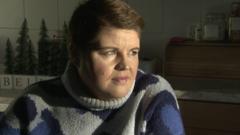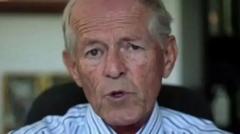In the Republic of Ireland, a country boasting one of Europe’s best-performing economies, many citizens feel disconnected from the nation’s economic success. As the country prepares for a general election, voters express frustration over persistent challenges in healthcare, housing, and public services.
Emma, a mother of four from County Donegal, exemplifies this sentiment. Her children have faced extensive medical waiting lists, with her 16-year-old daughter unable to receive rheumatology care before aging out of child services. Despite hearing that Ireland is among the world’s richest countries, Emma doesn’t see evidence of this prosperity in her daily life.
Local journalist Áine Ní Bhreisleáin confirms these concerns, noting that while people are told things are improving, the cost of living continues to rise, and essential services remain difficult to access. Donegal, in particular, feels like a “forgotten” county, struggling with infrastructure and systemic challenges.
One significant issue is the defective concrete blocks affecting thousands of homes. These Mica-containing blocks absorb water, causing walls to crack and crumble. While the government introduced a compensation scheme capped at €420,000, the problem remains a source of significant stress for homeowners.
Housing presents another critical challenge. Approximately 58,000 people are on the social housing waiting list, and experts suggest at least 35,000 new homes must be built annually to meet demand. The situation is complicated by immigration, with 150,000 newcomers arriving last year – the highest number in 17 years.
Donegal bears a unique burden, hosting the largest per-capita proportion of asylum seekers, with claims that one in every 100 county residents is an International Protection Applicant. Local radio host Greg Hughes highlights community concerns about perceived preferential treatment for newcomers.
Margarite, speaking at a Letterkenny shopping center, describes feeling “gaslit” by politicians. She believes there’s a significant gap between the country’s reported wealth and the lived experiences of people, especially in rural areas.
The disconnect is particularly pronounced in regions like Donegal, which feels distant from the center of government in Dublin. Residents question why the country’s economic success hasn’t translated into improved local services, better healthcare, and infrastructure development.
Greg Hughes summarizes the sentiment succinctly: While the government may be trying its best, people want to know when the country’s wealth will “trickle down” to their personal experiences.
As the election approaches, these unaddressed concerns create a sense of frustration. Citizens are demanding more than economic statistics; they want tangible improvements in their daily lives, from healthcare accessibility to housing affordability and local infrastructure.
The article reveals a complex narrative of economic success overshadowed by persistent social challenges, highlighting the disconnect between national economic indicators and individual experiences.




